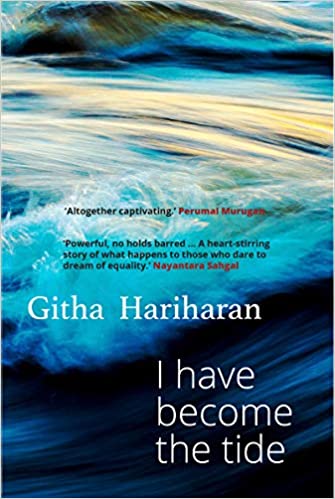Can the centuries old song of a humble washerman, Chikkiah, speak to us in contemporary India today? If that song could be heard today, how would we comprehend the world which shaped the song? Would we hear the echo of Chikkiah’s struggle for freedom and be able to find him in the body of someone just like him today? If so, who understood that song enough to carry its weight through time to bequeath as a gift for people who would rediscover its meaning with every passing generation? If Chikkiah’s song is still being heard, and still being sung after centuries, does the oppression that made him create the song, still exist?
Githa Hariharan’s poignant novel I Have Become the Tide is a brilliant attempt to give back to people that were forcibly placed at the bottom of India’s tyrannical social order, a measure of dignity, voice, respect and to find for them the individuality that was denied when they lived. It stands as a powerful and deeply empathetic retelling and representation of a history of Dalits and weaves that history into the odious contemporary politics of India today.
Chikkiah’s song asks, ‘Where is the land where water flows free?’ This search for free-flowing water, a symbol of boundlessness and infinity, is a representation of Chikkiah’s quest for the liberation of his spirit. Born as an ‘untouchable’ person who joins a casteless commune called Anandagrama during an unspecified era in India, Chikkiah searches for freedom from oppression and a desire for respect, dignity and a life of meaning. He finds a measure of happiness at this commune. Being unable to read or write, his wife, Mahadevi, and he compose and finish each other’s songs while they work on the commune and raise their child Kannappa. They manage to find a way to send their only son to a monastery to be educated, not knowing that this decision will transform their lives, their son’s place in history and the ultimate fate of a professor of literature in contemporary India.

